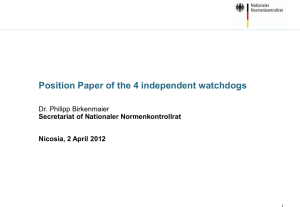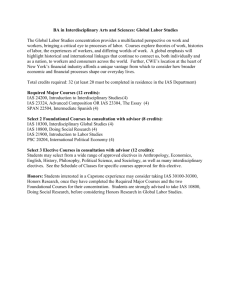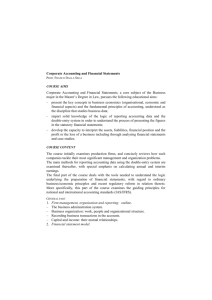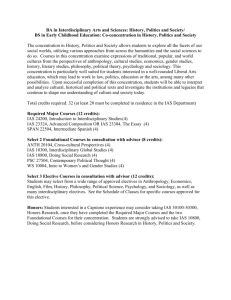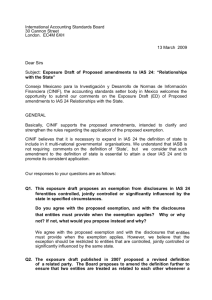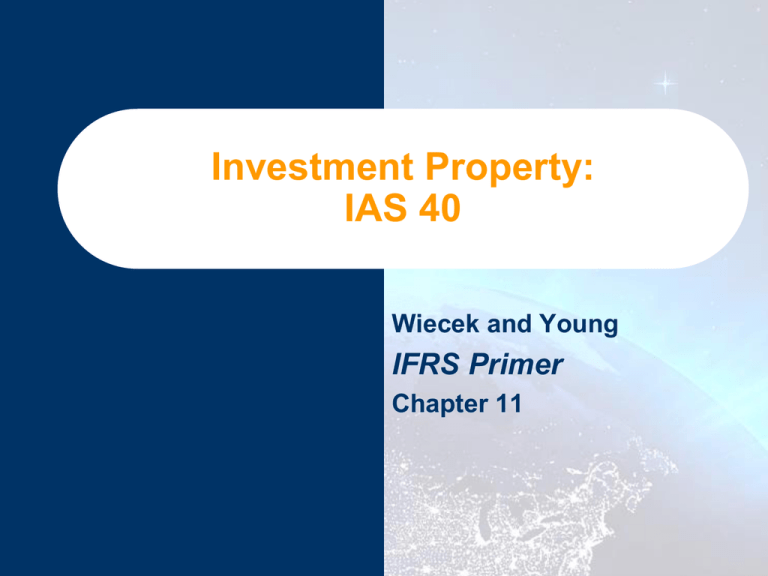
Investment Property:
IAS 40
Wiecek and Young
IFRS Primer
Chapter 11
Investment Property
2
Related standards
IAS 40
Current GAAP comparisons
IFRS financial statement examples
Looking ahead
End-of-chapter practice
Related Standards
3
FAS 153 Exchanges of nonmonetary assets
APB 29 Accounting for nonmonetary
transactions
FAS 144 Accounting for the impairment on
disposal of long-lived assets
Related Standards
4
IAS 2 Inventories
IAS 16 Property, plant and equipment
IAS 17 Leases
IAS 23 Borrowing costs
IAS 36 Impairment of assets
IFRS 5 Non-current assets held for sale and
discontinued operations
IAS 40 - Overview
5
Objective and scope
Recognition
Measurement at recognition
Measurement after recognition
Transfers
Derecognition
Disclosures
IAS 40 – Objective and Scope
6
IAS 40 identifies what an investment property
is, how it differs from property, plant and
equipment (owner-occupied property); and
what recognition, measurement and
disclosure standards apply to investment
properties
IAS 40 – Objective and Scope
Investment property is defined as:
property held to earn rentals or for capital
appreciation or both, rather than for
(a) use in the production or supply of goods or
services or for administrative purposes; or
(b) sale in the ordinary course of business
7
IAS 40 - Recognition
-
-
8
Investment property is recognized as an
asset when:
it is probable that its future economic benefits
will flow to the entity, and
its cost can be measured reliably
IAS 40 – Measurement at
Recognition
9
Investment property is recognized initially at
cost – applying the cost model of IAS 16
Property, Plant and Equipment – including
what is capitalized in cost and the principles
for non-monetary transactions
Leased investment property is measured
according to IAS 17 Leases
IAS 40 – Measurement after
Recognition
10
After initial recognition, an entity has a choice
of methods to account for investment
property:
Fair value model (FVM), or
Cost model (CM)
Must apply one model to all of its investment
property
IAS 40 – Measurement after
Recognition
Fair value model (FVM):
-
-
-
11
Assets are measured at fair value
Changes in fair value are recognized in profit
or loss in period of change
No depreciation is recorded
Fair values continue to be used even if
difficult to measure reliably
IAS 40 – Measurement after
Recognition
12
Fair value:
Price at which property could be exchanged
between knowledgeable, willing parties in an
arm’s length transaction, without any special
concessions or deductions for transaction
costs
Best evidence is current prices in an active
market for similar property in the same
location and condition
If not available, other methods can be used
to determine
IAS 40 – Measurement after
Recognition
FVM example:
Investment property is acquired August 11,
2008, at a cost of $200.
Fair values:
December 31, 2008 - $190
December 31, 2009 - $198
December 31, 2010 - $205
13
IAS 40 – Measurement after
Recognition
FVM example:
Dec.31/08 Loss in value
$10
Investment property
Dec.31/09 Investment property $ 8
Gain in value
Dec.31/10 Investment property $ 7
Gain in value
14
$10
$8
$7
IAS 40 – Measurement after
Recognition
Cost model (CM)
- Applies cost model described in IAS 16
- Assets reported at cost less accumulated
depreciation and accumulated impairment
losses
- Depreciation expense recognized each
period
15
IAS 40 – Measurement after
Recognition
Do companies use the FVM or the CM?
KPMG: The Application of IFRS: Choices in
Practice – International Financial Reporting
Standards, December 2006
http://www.kpmg.co.uk/pubs/304574_ifrg.pdf
See pages 18 and 19 of 44
16
IAS 40 - Transfers
17
IAS 40 - Derecognition
Derecognize investment property
On disposal – when sold or transferred under
a finance lease, or
On retirement – when permanently removed
from use and no benefits are expected from
its disposal
Gains and losses on disposal generally
recognized in profit or loss
18
IAS 40 - Disclosures
General disclosures:
19
whether the FVM or the CM is applied
if FVM, whether and when any operating leases are classified
as investment property
criteria used to distinguish between owner-occupied investment
property and property held for sale where judgment is needed
methods and assumptions underlying fair value measurements,
including extent to which market-related evidence is used
extent to which the fair values were determined by an
experienced, professional, and independent appraiser
existence of restrictions and contractual obligations related to
the properties
amounts and specific types of income and expense recognized
in profit or loss
IAS 40 - Disclosures
20
Current GAAP Comparisons
Page 62 of 164 of
http://www.kpmg.co.uk/pubs/IFRScomparedtoU
.S.GAAPAnOverview(2008).pdf
21
IFRS Financial Statement
Disclosures
Sponda Plc
http://www.sponda.fi/www/In_english/Investors/Annual_reports.iw3
Annual Report 2007:
Balance sheet
Income statement
Accounting policies
Investment properties
note
22
Page 58 of 112
Page 57 of 112
Page 65 of 112
page 77 of 112
Looking Ahead
23
No significant investment property issues on
the IASB agenda.
Longer-term changes expected in IAS 17
Leases may affect IAS 40
End-of-Chapter Practice
24
End-of-Chapter Practice
25
End-of-Chapter Practice
26
End-of-Chapter Practice
27
Copyright © 2010 John Wiley & Sons, Inc. All rights reserved.
Reproduction or translation of this work beyond that permitted
by Access Copyright is unlawful. Requests for further
information should be addressed to the Permissions
Department, John Wiley & Sons Inc., 111 River Street, Hoboken,
NJ 07030-5774, (201) 748-6011, fax (201) 748-6008, website
http://www.wiley.com/go/permissions. The purchaser may make
back-up copies for his or her own use only and not for
distribution or resale. The author and the publisher assume no
responsibility for errors, omissions, or damages caused by the
use of these programs or from the use of the information
contained herein.

